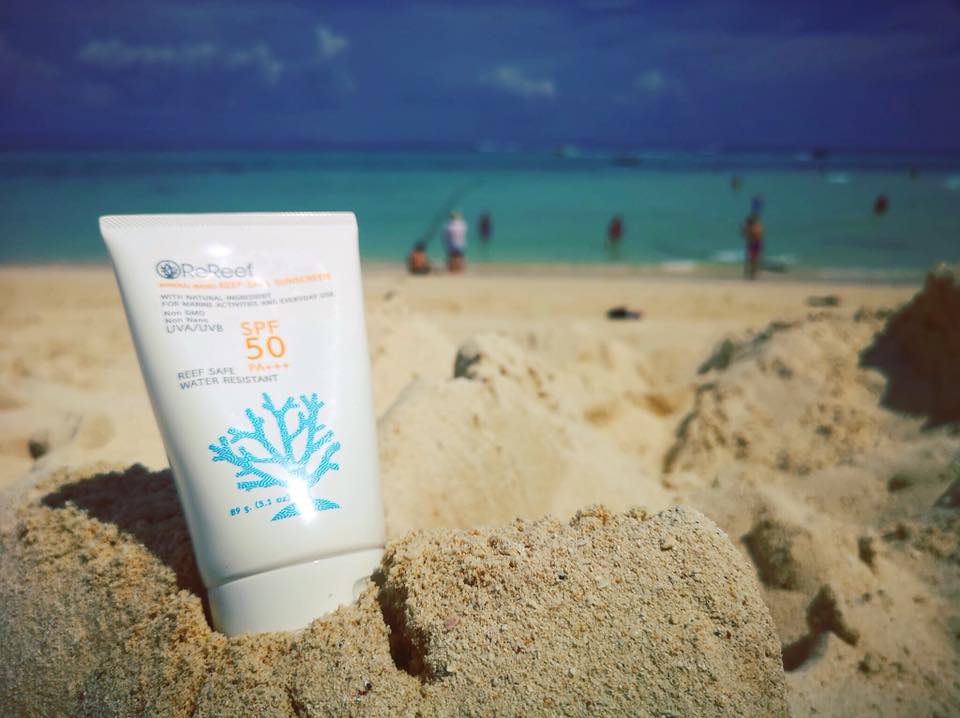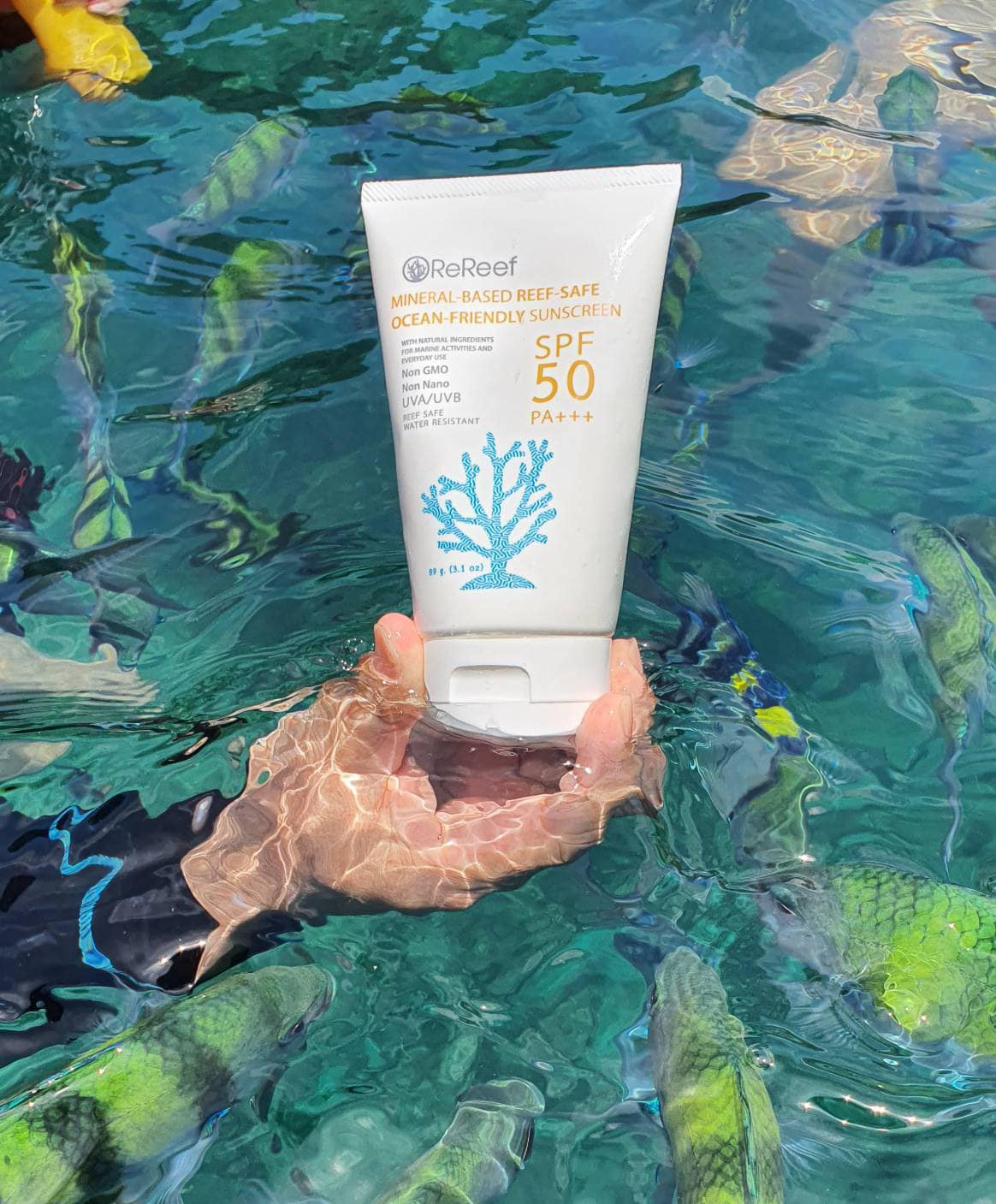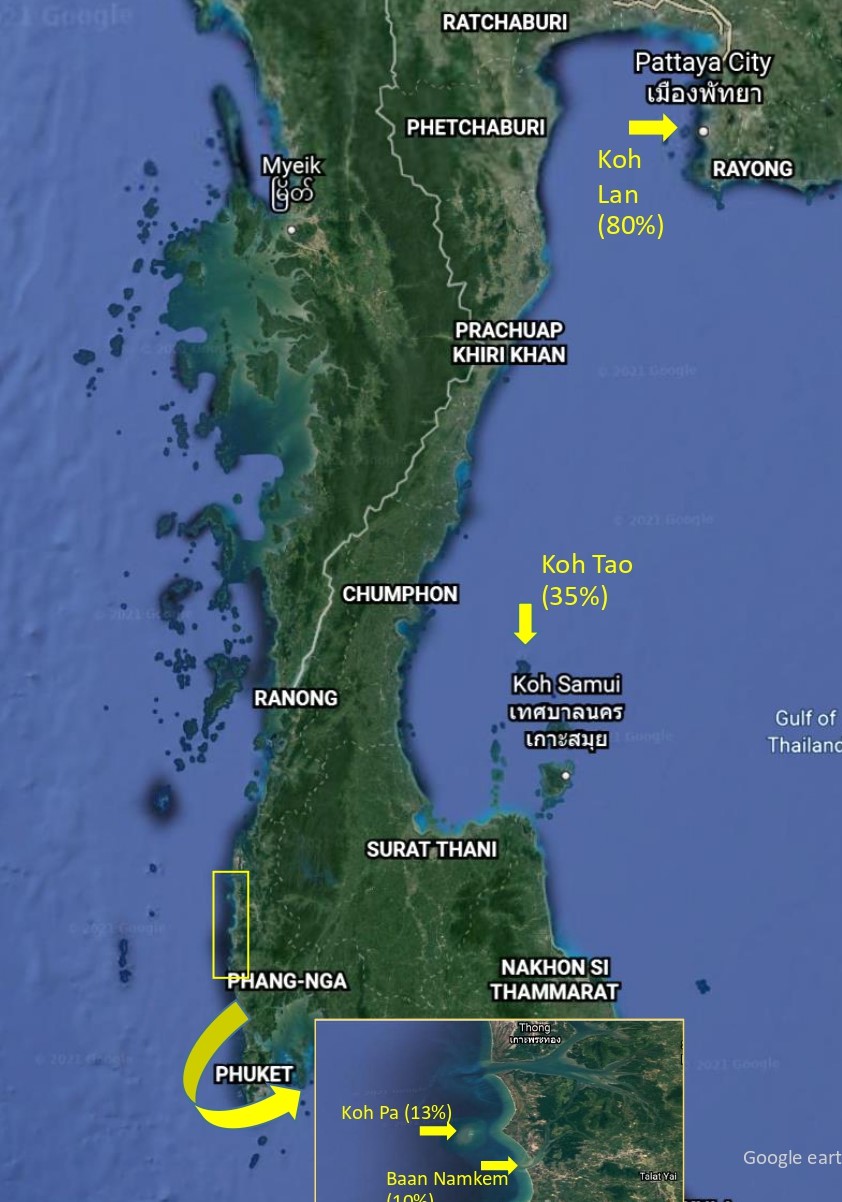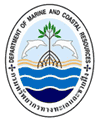Impacts of sunscreens on coral reefs
Dr Elizabeth Wood, Marine Conservation Consultant from UK wrote the “Impacts of sunscreens on coral reefs” report for an International Coral Reef Initiatives (ICRI). She found a small number of studies have shown that sunscreen and certain individual components of sunscreen can have negative effects on corals and other marine organisms under certain circumstances. The chemical UV filter oxybenzone has been studied most intensively and the following effects have been described:
• Bleaching of coral fragments and coral cells from various species of hard coral. This effect is more pronounced at higher water temperatures.
• Induction of the lytic viral cycle in symbiotic zooxanthellae with latent infections.
• Damage and deformation of coral larvae (planulae).
• Damage to coral DNA and to their reproductive success.
To date, experiments have largely been undertaken exsitu and there are concerns that they may not properly reflect conditions on the reef, where pollutants could be rapidly dispersed and diluted. In general, concentrations of UV filters used in experimental work have been higher than likely to be encountered in the reef environment. Most experiments have also been of relatively short duration (12 or 24 hours). On the reef, while UV filters may be at lower concentrations, they can accumulate in organisms and sediment and thus become persistent, with largely unknown consequences.
Research to date has also concentrated mainly on the effects of sunscreens and individual chemicals at subcellular, cellular and individual organism level, with very few studies of wider impacts.
Further research is needed to better understand which ingredients are safe and which pose a realistic threat to marine ecosystems, in particular:
• Determining concentrations of different sunscreen components in the water column, sediment and biota, comparing locations that are heavily visited and/or affected by coastal run-off with those that are more remote.
• Investigating the effects of sunscreen pollutants at reef community and ecosystem level.
• Exploring links between organismal or cellular/ subcellular-level biomarkers that more easily allow the study of pharmaceutical effects on biodiversity/ community composition and ecosystem functioning.
• Investigating UV filter toxicity in relation to predicted warming and ocean acidification conditions.
• Researching the extent and significance of bioconcentration and bio-accumulation of organic UV filters as well as the consequences of long-term, chronic exposure to sunscreen pollutants.
• Studying the effects of pharmaceutical and personal care products (PPCP) mixtures to provide a more realistic picture of ecological risks posed by the use of these products.
• Identifying those ingredients that are safe and those that pose a realistic threat to marine ecosystems.
Considering the many stresses already faced by reefs and current concerns about the toxicity of certain components of sunscreens to corals, a proactive and precautionary approach to dealing with this issue may be required. Reducing the amount of harmful sunscreen components that reach the reef environment is a high priority and will require the involvement of governments, reef managers, divers, snorkelers and swimmers, and the tourism and pharmaceutical industries. The following measures are recommended:
• Encouraging the manufacture of reef-friendly sunscreens.
• Promoting the use of reef-friendly sunscreens and other methods of UV protection
• Regulating the sale and use of sunscreens containing toxins
• Exerting consumer pressure to encourage development and use of eco-friendly sunscreens
• Introducing financial disincentives for manufacture and use of potentially damaging sunscreens

Select Reef-friendly sunscreen will help coral reefs.
Image courtesy of "ReReef"
* Please download the full report at the ICRI website: https://www.icriforum.org/wp-content/uploads/2019/12/ICRI_Sunscreen_0.pdf
* Thai translation by Mr. Niphon Phongsuwan, Coral Reef Expert. Please download the document here:
https://drive.google.com/file/d/15cg0P5YYVeMfEWgjNBMpQKsxjbPDzCTr/view?usp=sharing
Facebook page: @GreenfinsThailand











